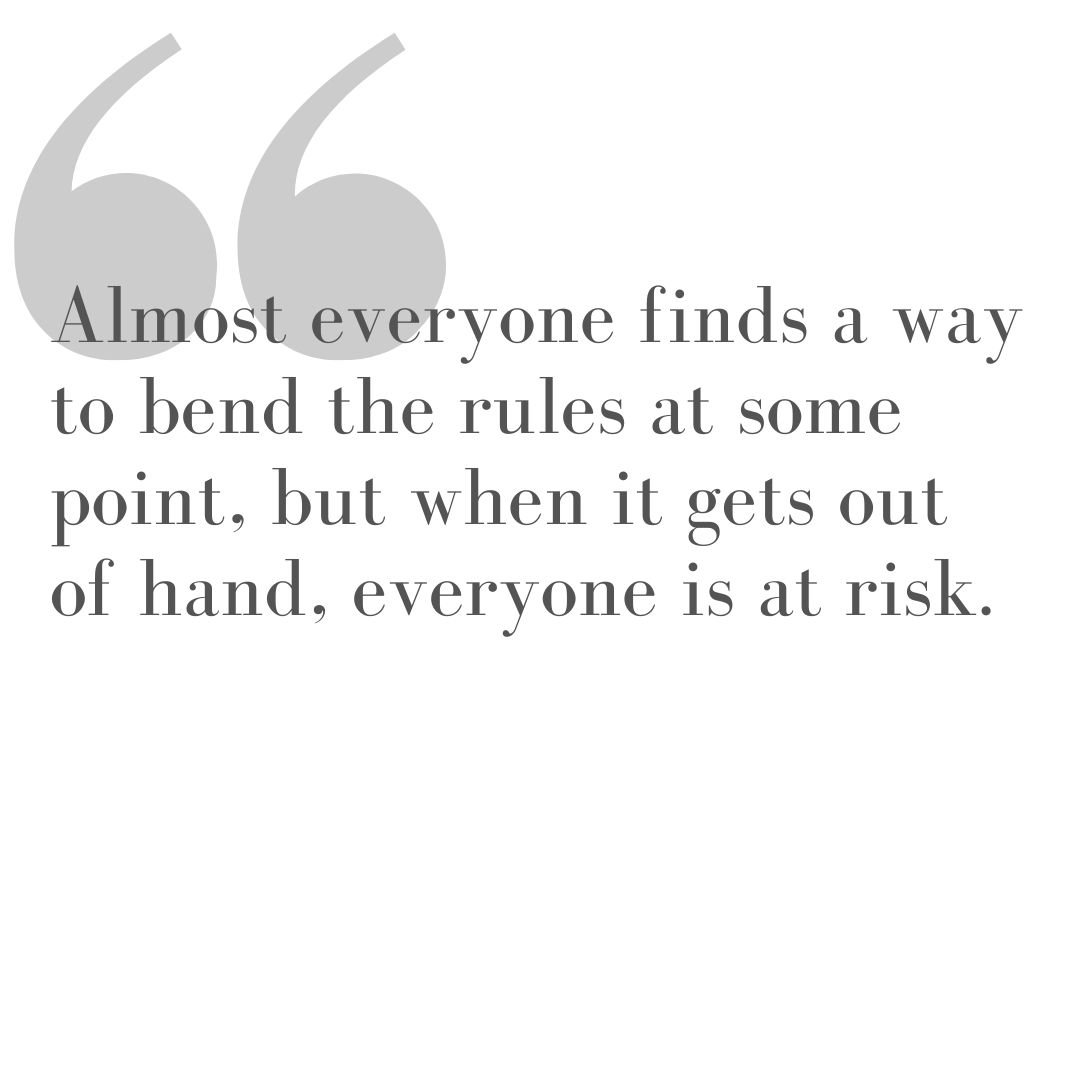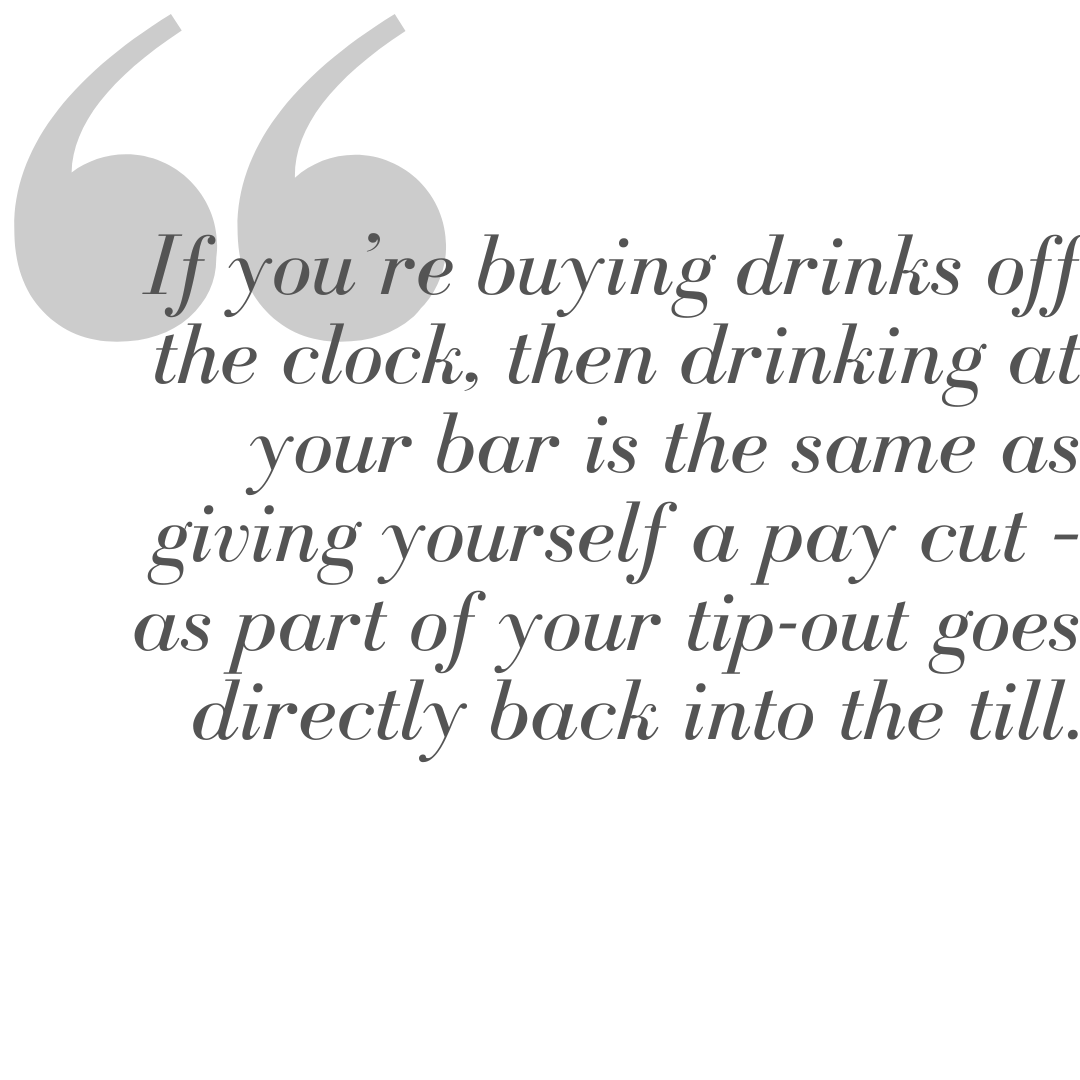Keep Your Server Permit: No Drinking on the Job
DOWNLOAD PDF- Lawson, Rachel Schaffer White, Jacob R.
- Industry Alerts
Click “Subscribe Now” to get attorney insights on the latest developments in a range of services and industries.
One of the most popular incentives for service industry employees is the “Shift Drink” – a drink on the house to unwind after a work day. On the surface, the Shift Drink is a relatively low-cost and readily available perk that an owner or manager can use to show appreciation for employees. However, all parties must think carefully about the inherent risks before having a few cold ones in the workplace.
 Many have seen the typical policy: “Employees can have one drink after clocking out,” but any person with experience in the service industry can tell you that strict compliance with such a policy is rare. What happens when off-the-clock trickles into on-the-clock? What happens when one drink turns into more? We’ve all seen someone clock out before rolling silverware so they can enjoy a beer while they roll, but how often has someone forgotten to clock out or tried doing other side work after one too many? Another popular scenario is the generous guest or fun regular who wants to “buy a round for the kitchen” or “take a shot with the bartender.” If enough generous customers get the same idea, then all parties will be in for serious problems. Bartenders will occasionally take a straw full of certain drinks for quality control purposes, but what happens when one “accidentally” over-pours a few ingredients in the shaker and consumes the excess? Almost everyone finds a way to bend the rules at some point, but when it gets out of hand, everyone is at risk.
Many have seen the typical policy: “Employees can have one drink after clocking out,” but any person with experience in the service industry can tell you that strict compliance with such a policy is rare. What happens when off-the-clock trickles into on-the-clock? What happens when one drink turns into more? We’ve all seen someone clock out before rolling silverware so they can enjoy a beer while they roll, but how often has someone forgotten to clock out or tried doing other side work after one too many? Another popular scenario is the generous guest or fun regular who wants to “buy a round for the kitchen” or “take a shot with the bartender.” If enough generous customers get the same idea, then all parties will be in for serious problems. Bartenders will occasionally take a straw full of certain drinks for quality control purposes, but what happens when one “accidentally” over-pours a few ingredients in the shaker and consumes the excess? Almost everyone finds a way to bend the rules at some point, but when it gets out of hand, everyone is at risk.
In Tennessee, no retail licensee or any of its employees may engage in the sale of alcoholic beverages while under the influence of intoxicants or drugs. Further, no retail licensee or employee may consume alcoholic beverages within publicly accessible areas of the establishment. (TABC Rule 0100-03-.15(3)). In short, the rule very clearly prohibits any form of drinking on the job. Breaking this rule creates severe consequences for both the bar and the server. The bar can be fined thousands of dollars per employee, and if serious enough, could face license suspension or revocation. The server can be subject to: (a) thousands of dollars in fines; (b) loss of their server permit for up to three years; and (c) misdemeanor imprisonment.
Dickinson Wright has received several reports from retail clients of the Tennessee Alcohol Beverage Commission increasing enforcement with respect to servers drinking on the job. Rumors include officers conducting sting operations or unannounced inspections at various locations and breathalyzing staff. Routine inspections are commonplace for Tennessee servers, particularly for things like serving minors, but all must stay aware of the other rules and regulations applicable to serving liquid courage. Generally, the risk of breaking the rules (knowingly or unknowingly) is not worth the reward.
Regardless of the inherent legal risks in Tennessee, any manager, owner, server, or other industry member should consider the practical effect of drinking on the job. If staff is imbibing, the quality of the work product will decline. It could be as harmless as an imbalanced drink, or as dangerous as a foreign object in a patron’s food. An employee could stumble into a guest, causing injuries to both. Does insurance cover that type of loss if the employer routinely allows employees to drink on the clock (or knows it happens and fails to correct it)? For the server, if the quality of the patron’s experience declines because the server is intoxicated, then tips from that patron will most likely decline in proportion. If you’re buying drinks off the clock, then drinking at your bar is the same as giving yourself a pay cut – as part of your tip-out goes directly back into the till. This is only a short list of concerns for any restauranteur, but the common sense apprehension to drinking on the job applies in the service industry in the same manner as any other. 
We all appreciate that the service industry is a high-stress and tiring environment. Those who participate should be able to enjoy a drink after a long day at work just like any other person. However, all parties must consider the potential risks, open alternatives, and other relevant factors before ringing in Shift Drink(s).
If you have questions or concerns, don’t hesitate to contact the DW hospitality team today.
Related Practices
Recent Insights
- February 07, 2025 Media Mentions The USAToday article, “What will we be drinking in 2025? Americans are chasing moderation,” recently quoted Rachel Schaffer Lawson.
- January 28, 2025 Media Mentions Rachel Schaffer Lawson was recently quoted in the BevNet article, “The Legal Issues On Tap For Bev-Alc, Adult Non-Alc In 2025.”
- July 21, 2023 Industry Alerts Tennessee Sues Six Online Alcohol Retailers


